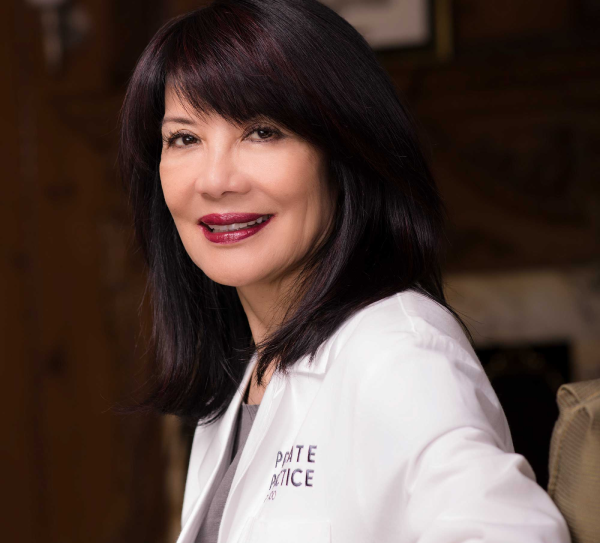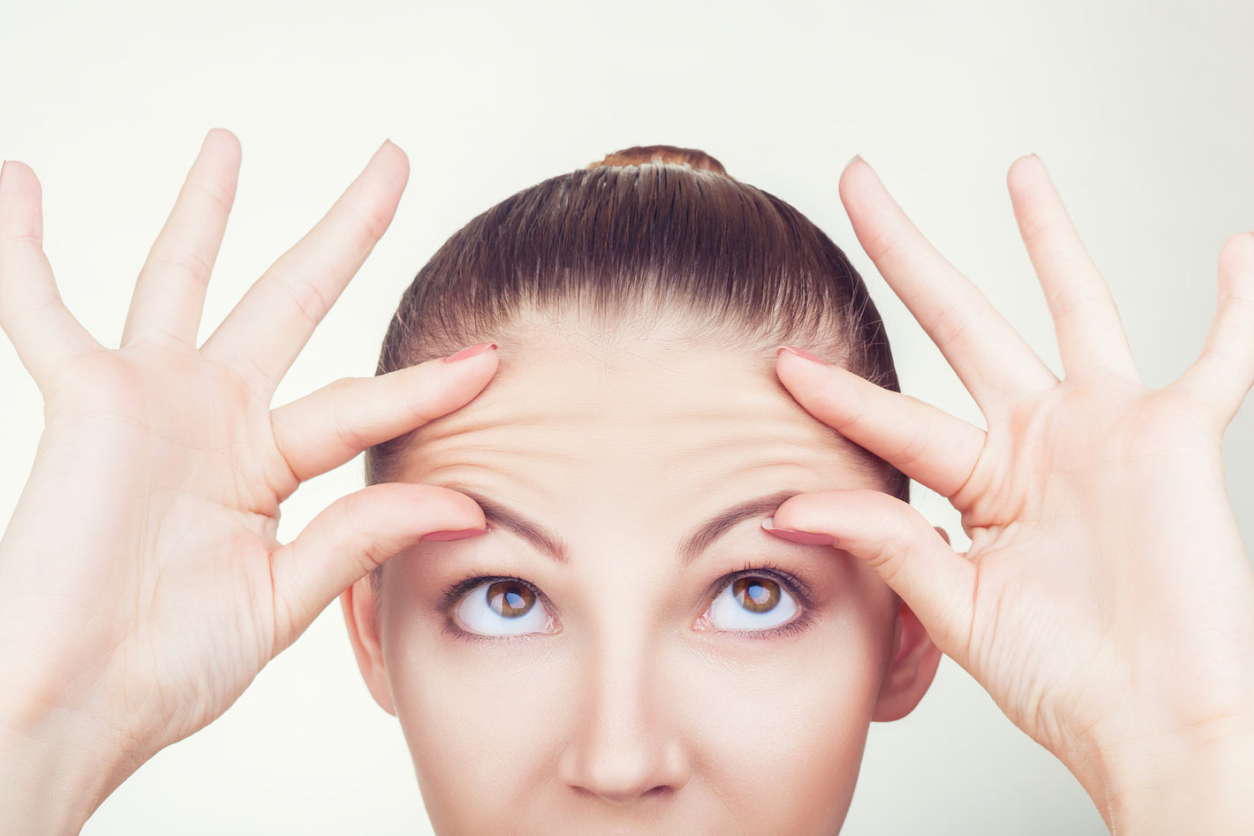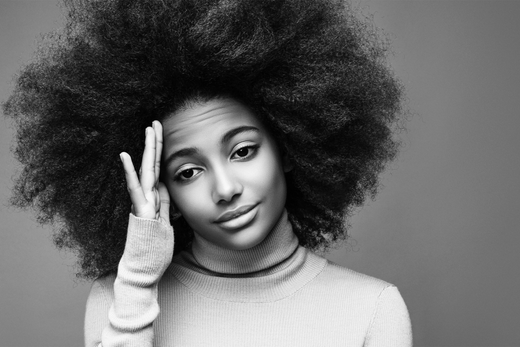What is Retinol?
By now if you're visiting Dr Koo Skincare researching medical-grade retinol products, you most likely know that retinol is the one magic ingredient with the most science and data to remedy almost every skin woe from hyperpigmentation (dark spots), acne, enlarged pores, wrinkles, fine lines, to rough skin texture and anti-aging. It can act as an antioxidant, increase cell turnover and collagen production. But what exactly is retinol?
Retinol is an over the counter version of a RETINOID. Retinol like all retinoids are all in the Vitamin A family (derivatives of Vitamin A). Retinol must be converted to the active ingredient retinoic acid inside skin cells for all the above magic of anti-aging and complexion smoothing to occur.
Retinol, however, is not the same as Retin-A or TRETINOIN which are prescription retinoids. Retin-A is a trade name for a low dose TRETINOIN. Both Retin A and TRETINOIN are also in the Vitamin A family BUT are prescription only and may cause significant dryness, irritation, and peeling for retinol novices or those with sensitive skin or skin of color.
Retinol is still the strongest version of the over the counter retinoids, such as retinaldehyde and retinyl palmate. It also has a very safe use profile and may be more effective for all skin types and hence better tolerated for a nightly skin routine. The key is to maintain a consistent routine with the formula suited for your skin type.
What Does Retinol Do? The Science Behind Retinol!
Retinol products must first be converted to retinoic acid, the active ingredient, within the skin cell (keratinocytes) to improve skin elasticity, uneven skin tone, and lessen acne and wrinkles. Retinol must bind to retinol binding proteins within dermis cells to be converted to retinoic acid.
To achieve the anti-aging and antioxidant effects, retinol travels deep into the dermis and attaches to skin cell (keratinocytes) receptors stimulating their cell turnover and collagen production. It also captures free radicals created by UVA and UVB rays, pollution, and other environmental aggressors thereby improving "plumpness" and firmness.
The bottom line is the reduction in appearance of fine lines, wrinkles, and enlarged pores. Retinol also has an exfoliating effect on the skin’s surface that can further improve texture and skin tone.


Retinol can also help treat acne and related scarring with its skin brightening properties. The increased cell turnover helps prevent pore congestion and breakouts.
Finally, retinol has also been shown to balance your skin moisture and ceramide levels improving its skin barrier function. With all the above proven effects, it is no wonder dermatologists and plastic surgeons recommend retinol as THE must ingredient for a night cream or night time routine.
Retinol Vs Retinoid
There is often confusion between these terms. A retinoid is the broader category of chemicals that regulate cell function. Vitamin A is a retinoid. Vitamin A is a fundamentally important vitamin necessary for cell growth and differentiation. Its effects are easily observed during topical use with improvements in skin texture, wrinkles, and pores.
The Food and Drug Administration (FDA) approved Vitamin A as the first agent for anti-wrinkle and anti-aging effects. Retinol is a very safe type (derivative) of Vitamin A. Once it is converted to retinoic acid, it can achieve the same effects of Vitamin A. Retinol is among the most effective substances that can slow the aging process.
Retinol promotes skin cell proliferation, strengthens the protective function of the epidermis, limits moisture loss, protects collagen against degradation and squelch free radical superoxide activity.
All of the above makes retinol a magical skin saving, youth preserving ingredient for a skincare routine and a savior for acne-prone skin breakouts.
How Often Should You Use Retinol?
Dermatologists and plastic surgeons recommend using retinol consistently every night if tolerated by your skin type. The key to retinol's success for anti-aging benefits lies in the nightly consistent use to remove dead skin cells and stimulate cell turnover. The formula of your retinol product is CRITICAL for efficacy and how often you will be able to use retinol. Your residence of New York City versus Denver will also make a difference because of the seasonal humidity and temperature. Your specific retinol formulation will make all the difference whether you can use it as a nightly routine or not.
Will Retinol Cause Irritation If I Have Sensitive Skin?
The retinol formula and ingredients will 100% determine if you can use the retinol. Typically retinol formulas that are fragrance-free, contain hyaluronic acid, vitamin F, vitamin C, peptides and other clean supporting vitamins and moisturizers make the best retinol creams and serums. Typically sensitive skin and skin of color will not tolerate prescription retinols (tretinoin), even if it is retin-a. A blended, balanced, capsule retinol may all benefit sensitive skin, retinol novices, or skin of color (dark or very fair). If you have sensitive skin, never start with a high-dose retinoid serum or cream. Slowly build up your nightly routine to the retinol strength needed for your skin age and type.
Can I Use Retinol if I Am Pregnant or Planning to Become Pregnant, or Am Nursing?
Dermatologists and plastic surgeons from New York City to Paris agree that topical use of RETINOL during pregnancy merely exists as a theoretical concern. However, the above distinctions between TRETINOIN, VITAMIN A, and RETINOL must be carefully dissected and adhered to. Vitamin A is a fundamentally important vitamin needed for the growth and differentiation of cells, and its effects are easily observed during topical administration via improvements in skin texture, wrinkles, and skin damage. When Vitamin A is topically delivered in the form of Retinol, it is (and must be) enzymatically converted to Retinoic Acid to act on specific skin receptors. Such as the countless mechanisms of wonder in the skin, this necessary conversion allows for precise control of the levels of Retinoic Acid generated and prevents an excess that could have negative health effects (to mom or baby). Thus, one can regard Retinol as an inactivated form of Vitamin A and unable to inflict any harm during pregnancy.
Prior to using retinol during pregnancy, the recommendation is to READ the ingredients and concentrations CAREFULLY.
Many specific formulations, including Dr Koo's Medical Grade Retinol adhere to the strict safety standards set forth by CA Prop 65 to limit Vitamin A topical application to 8000 IU per day during pregnancy. Consequently, no products in the Dr. Koo Skincare routine contain greater than 8000 IU of Retinol. While this approach is endorsed as safe, the most conservative option is to forgo use of Retinol during the first trimester of pregnancy.
We offer an excellent Pregnancy Skin Rescue set that includes retinol treatments and works perfectly during pregnancy.
Does Retinol Prevent Wrinkles & Fine Lines?
Yes, yes, and yes. HOWEVER, you must also participate AND use daily sunscreen 30-50 spf, not smoke, get adequate sleep, exercise, and try to eat nutritional foods. Simple right? NOT.
If you use the appropriate dose and formula of retinol in a consistent nightly routine, cleanse your face appropriately for your skin type and needs, give your skin adequate moisture treatments, and topical vitamin C, vitamin A, vitamin F and vitamin K serums, you will 100% without a doubt slow the aging curve and minimize and even prevent wrinkles and dark spots.
Does Retinol Help With Acne?
Either retinol cream or retinol serum will lessen and shorten acne breakouts. The importance is the dose and formula of the retinol. For the most effective anti acne treatment, use a buffered, pH-balanced retinol, appropriate cleanser for your skin type, and a light water based moisturizer to prevent clogging pores. Retinol used in conjunction with a Vitamin C, Vitamin F, niacinamide, and hyaluronic acid can have a lightening effect on dark spots left by acne scarring.
Does Retinol Shrink Your Pores?
Indeed, retinol can lessen pores by exfoliating dead skin cells preventing pores from clogging Retinol also increases cell turnover remodeling the skin and tightening the pores.
Is Retinol an Antioxidant?
Yes, retinol acts as an antioxidant with its ability to neutralize free radicals generated by UV rays, pollution and toxins that disrupt our skin barrier. Free radicals can cause skin cancers and disrupt matrix metalloproteinases (MMPs). MMPs are proteins that act as the traffic controllers of our physiological processes such as bone remodeling, immunity, angiogenesis (new blood vessel production), and wound healing. Disrupted MMPs have led to inflammation, cancers, and arthritis.
Is Vitamin A the Same as Retinol?
Retinol is a member of the larger Vitamin A family. It is the strongest over the counter form of Vitamin A that has been FDA approved for skin anti-aging treatment. There are many forms of Vitamin A, retinol is the strongest over the counter form of Vitamin A used to lessen fine lines, wrinkles, pores, and acne breakouts.
Does the Retinol Formula Really Matter?
The ingredients and the formula is 1000% the heart of any retinol. Make sure it is fragrance free. It doesn't need to be vegan unless that is your preference but it does need to contain a strong enough dose for your skin age and wrinkle level. For optimal results it should contain or you should also use an additional serum containing vitamin F, vitamin K, vitamin C, niacinamide, and hyaluronic acid.
Do I Need a Moisturizer With My Retinol?
Yes, because the retinol can dry your skin especially during cold temperatures and low humidity. Additionally, the better your skin barrier function (level of moisture), the slower and flatter your aging curve progresses.
Find our retinol collection here, and get the most from your skincare with our exceptional treatments.




